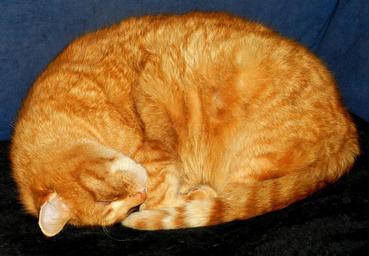Eating, drinking, breathing. All very important biological functions that nobody would ever question as incredibly valuable. Nobody would ever skip (hopefully) drinking anything for two days straight just to get some extra work done. So then why do people willingly go long periods of time without sleep? For some its just difficult getting the quality sleep they desire because they may have picked up some bad habits along the way, whether it be within their control or not.

Last week we talked about the different issues that are caused by sleep deprivation, and now we’re going to look into different ways to improve our sleep.
A Sleeping Routine
The first, and probably the most effective way to improve sleep is by going to sleep and waking up at the same time everyday. Sleeping becomes easier when it is aligned with our circadian rhythm, which is basically our inner biological clock. Having to be tied down to a specific bedtime may seem like a hassle for some people, but once you have it down it actually makes you more productive. Your body will be anticipating that specific time and you will begin to fall asleep more quickly when your head hits that pillow.
Putting down that device
Our phones emit a blue light that will negatively affect our ability to produce melatonin. Melatonin is the hormone our bodies use to control our circadian rhythm. In fact most devices including our tablets, televisions, and computer screens emit this blue light. Some devices have a handy setting or app you can download that will turn down the blue light at a certain point in the day, which definitely helps. Not only that, but having a phone anywhere near you while you try to sleep may give you trouble; thinking about missing out on social media, or reading some more emails can cause anxiety and racing thoughts when you are trying to get some rest. The best solution is to stop using any devices within a half hour before bed and keep them away from you after you climbed in bed so you’re not tempted to check it. If you use it as an alarm clock it might be a good idea to get a good old fashioned wall-plugged one.
Warm Bath
This probably isn’t something you could do everyday as it can be pretty time consuming, but its definitely an option to help you catch some sleep. Most people likely think that the effectiveness of taking a warm bath comes from being warm, but surprisingly its the opposite. After climbing out of a warm bath our body temperature falls which makes it easier to fall asleep. Normally when we are trying to fall asleep; our body will automatically lower its temperature in preparation. Having a cooler room in which to sleep in or having just gotten out of a bath will put your body in an ideal situation to improve sleep.
Exercise
Exercise is an incredibly important tool in a health striving individual, but how does it affect sleep? Generally those who partake in regular exercise have been known to have a higher quality sleep overall, but there are instances when exercise can hamper our ability to get a quality night of rest. Time of day is an important factor to consider. Rigorous exercise raises your body temperature for a few hours after completion, therefore exercising earlier in the day will likely result in an easier time getting to sleep.
Napping
Sometimes in the afternoon after we get home with work; we may feel like dozing off for a moment so we can get on with our day with some more energy. Then when you wake up you feel groggy and worse than when you first dozed off. The trick to this is the duration of the nap. You should aim for about 20 minutes; which will be enough to give you a little boost on alertness, but not enough to kill your mood. Sleeping for around 30 to 60 minutes will cause you to wake up feeling worse than you did before the nap. This is because you woke up in the middle of a sleep cycle which usually takes around 90 minutes. You could take a 90 minute nap, but at that point you would almost be better off just waiting until your actual bedtime.
Avoiding Caffeine

Caffeine is a powerful tool in today’s modern society for keeping us alert and be able to perform at our maximum potential. Unfortunately it can cause us issues when we are trying to get to sleep. The half-life of caffeine, which is the amount of time it takes for our body to eliminate one half of all caffeine from our system, is about 5 and a half hours for a healthy adult. This definitely reduces the ability to fall asleep and stay asleep, and it is recommended not to consume it 6 hours before going to bed.
Melatonin
Melatonin is a hormone that is naturally produced by our bodies to regulate sleep. There are instances where taking melatonin tablets can be helpful for inducing sleep and allowing us to get the sleep we crave. Some people work shift work and there circadian rhythm is thrown out of wack because of the constant change in sleeping time; others have to take flights across the country or around the world that vastly change their time zone which in turn messes with their ability to get a quality sleep at night. In these instances taking melatonin pills may be the answer.
Melatonin on Amazon: https://amzn.to/3aU2TeT
( Disclosure: These links may provide a discount and in return, give us commission in order to run the website )


